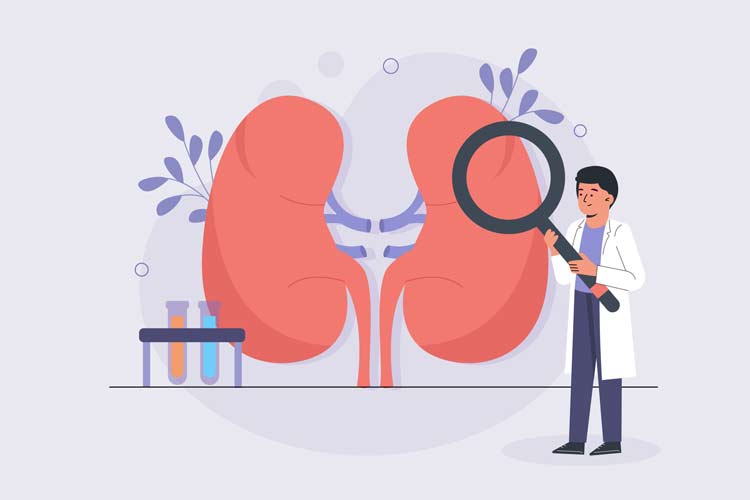Being referred to a kidney doctor, or a nephrologist, is a bit intimidating initially. You might be wondering what you are actually going to be doing during the appointment, if there are some particular kinds of tests involved, or if it hurts. The reality is, the initial visit is really all about learning and finding out more about your disease. Having a bit of an idea of what to anticipate will help take some of the stress away and make the process easier.
Why You May Be Sent to a Kidney Specialist
The doctor normally sends patients to see a nephrologist in case there are indications that the kidneys are failing. This may be due to high blood pressure, diabetes, blood or protein in the urine, swelling in the legs, or abnormal blood test results. In some cases, individuals with a history of kidney disease in their families are also referred to see a specialist as a precaution.
The purpose of the initial visit is not only to cure an issue immediately but to determine how your kidneys are working and what can be done to safeguard them.
Sharing Your Medical History
The consultation often begins with an in-depth review of your medical history. The expert will inquire about:
- Existing conditions like diabetes or high blood pressure
- Previous surgeries or serious illnesses
- Medications, including over-the-counter medications and supplements
- Lifestyle factors like diet, exercise, smoking, or alcohol
- Family history of kidney disease or related issues
Bring medication lists and recent medical records with you. The more accurate the information, the clearer the specialist will understand your situation.
Reading Symptoms
You will also be asked about symptoms that can suggest kidney problems, which are:
- Weakening or fatigue
- Swollen ankles, feet, or hands
- Changes in urination, such as frequency, color, or pain
- Shortness of breath
- Difficulty sleeping or concentrating
Even when symptoms seem insignificant, it’s best to bring them up. Small things can provide the most significant information on the operation of the kidneys.
Physical Examination
The nephrologist will most likely perform a routine physical exam. This may include:
- Blood pressure measurement (as high blood pressure has a tendency to target kidneys)
- Listening to your heart and lungs
- Examining your abdomen
- Checking for swelling in your legs, ankles, or near your eyes
These tests provide a better idea of how your body is dealing with potential kidney problems.
Tests You May Need
Blood and urine tests are routine on the first visit. Routine ones are:
- Blood tests: These test for amounts of creatinine and urea, which indicate how efficiently your kidneys work to remove waste. They also test for electrolytes such as potassium and sodium.
- Urine tests: These can detect protein, blood, or other irregularities.
- Imaging tests: An ultrasound may be prescribed to scan the size and shape of the kidneys.
None of the tests are done on the first day, but your nephrologist may request them to be taken soon after. The test results determine whether your kidneys are functioning as they should or if there is some early damage.
Discussing Risk Factors
Most of your initial visit is spent reviewing risk factors. Kidney disease is usually long in the making, and diabetes and high blood pressure are among the top causes. Your nephrologist will then discuss with you how to treat these conditions, change what you eat, or change the way you live to preserve kidney function.
They can also check if any of the drugs you are taking are damaging your kidneys and suggest an alternative drug if so.
Planning the Next Steps
By the end of the visit, the nephrologist will outline what he or she has discovered to this point. If there are no test results, he or she might wait to present an entire plan. You should, however, be able to leave home with a greater knowledge of what is occurring and what you need to do next.
The plan may involve:
- Scheduling follow-up visits
- Additional lab or imaging tests
- Dietary advice (less salt or protein)
- Modifications to current drugs
- Lifestyle advice to improve kidney function
The treatment will usually be individualized. What is appropriate for one patient is not another, so your treatment will be suited to you.
Preparation for the Appointment
Preparation can reduce stress on your first visit:
- Take all recent test results, if available
- Bring along a list of medications and supplements
- Document your symptoms, even the small ones
- Write down anything you wish to ask so that you don’t forget
Being prepared is in your nephrologist’s favor to obtain the overview timely and obtain the information that you need.
Questions You Might Need to Ask
In case you are not sure about something, ask. Some helpful questions are:
- What is my current kidney function?
- Do I require additional tests?
- What are some lifestyle modifications that I can make to maintain kidney function?
- How frequently should I return for follow-ups?
- Is the medication that I am presently taking safe for my kidneys?
Questioning places you on an active level with your care, which is what is necessary for long-term health.
Final Thoughts
Your initial consultation with a specialist in kidneys is less about treatment and more about getting to know your overall health. The physician will take a history, check for signs and symptoms, do tests, and check for potential risk factors. You’ll be aware of where you are and what you can do to maintain healthy kidneys by the end of the consultation.
Acknowledge what’s happening and the experience is no longer stressful. Open communication and proper guidance from a kidney doctor can help you master your kidneys and make decisions in your best interest in the long run.
Read More: PMBAUSA LLC and Medesun Prime: Free AI Medical Coding and Specialty Coding Fellowships
